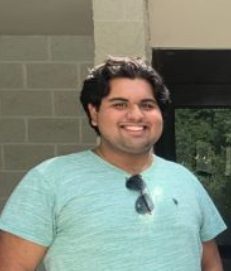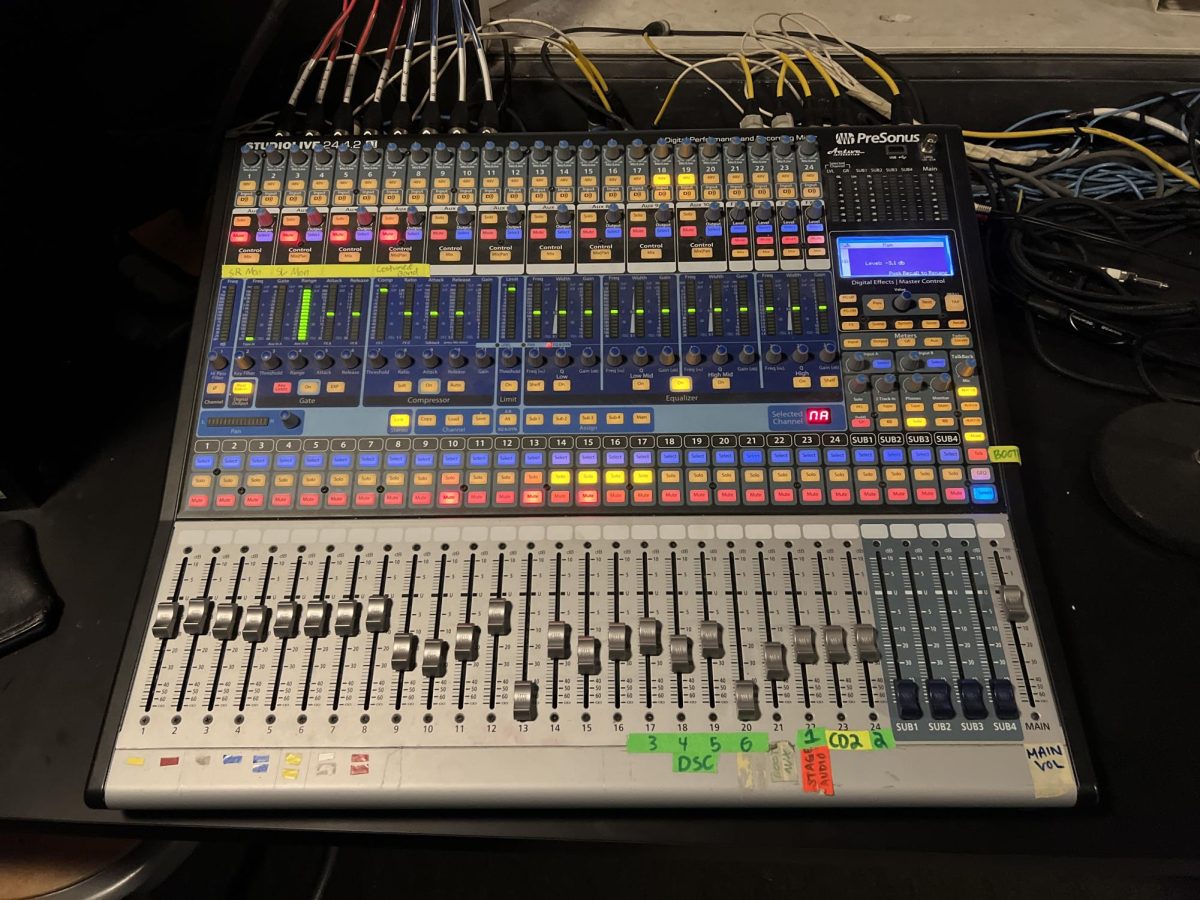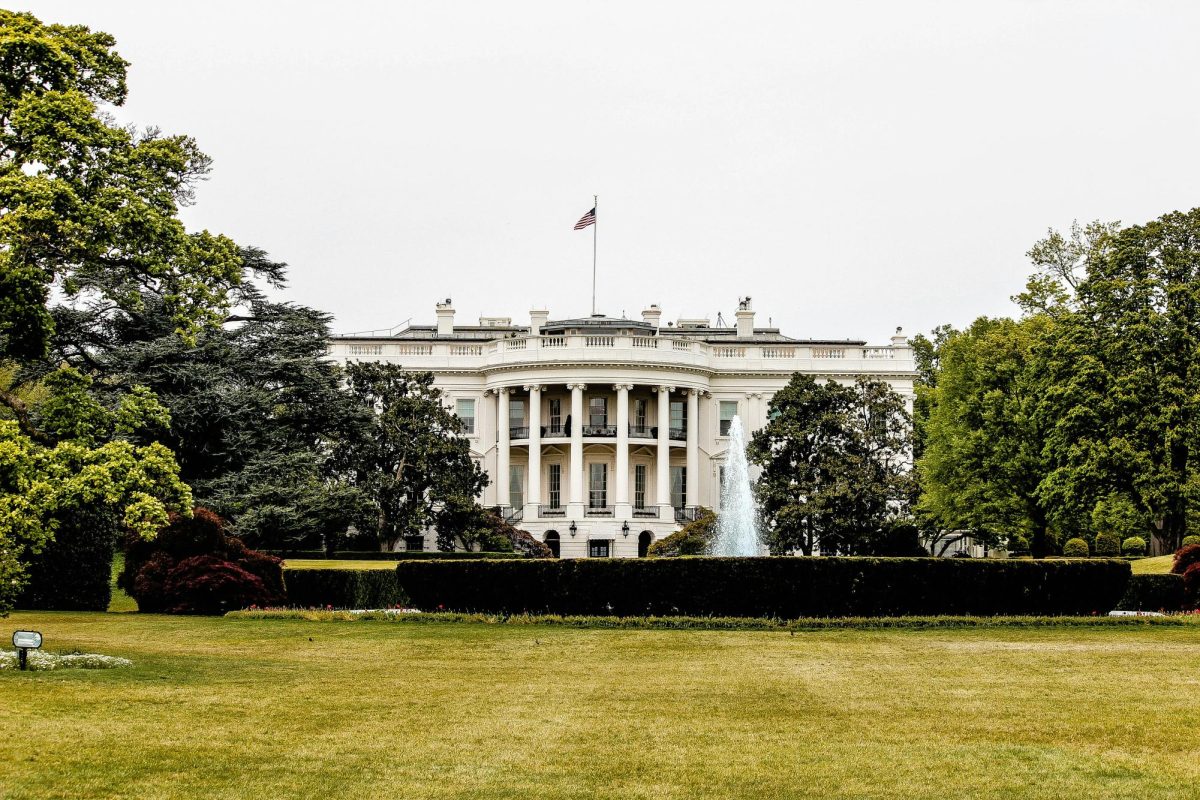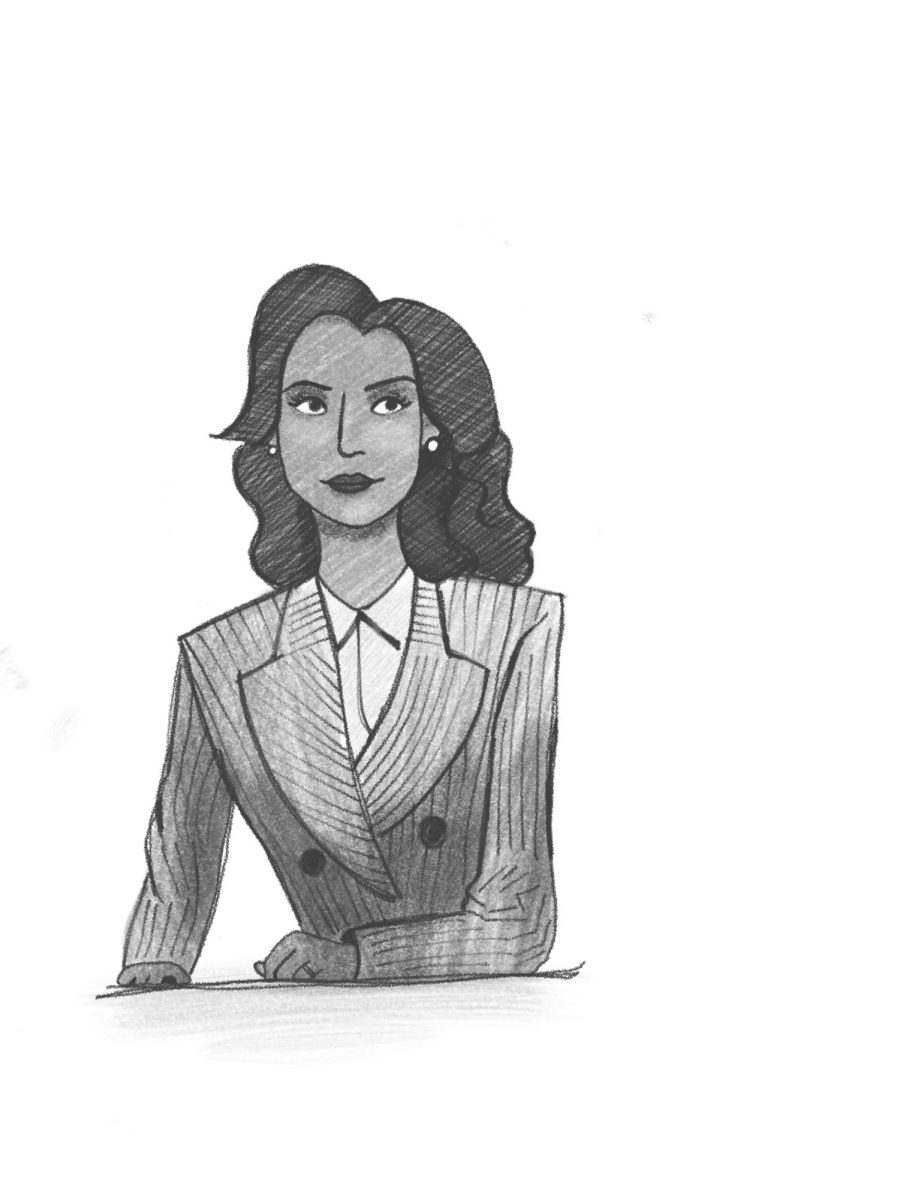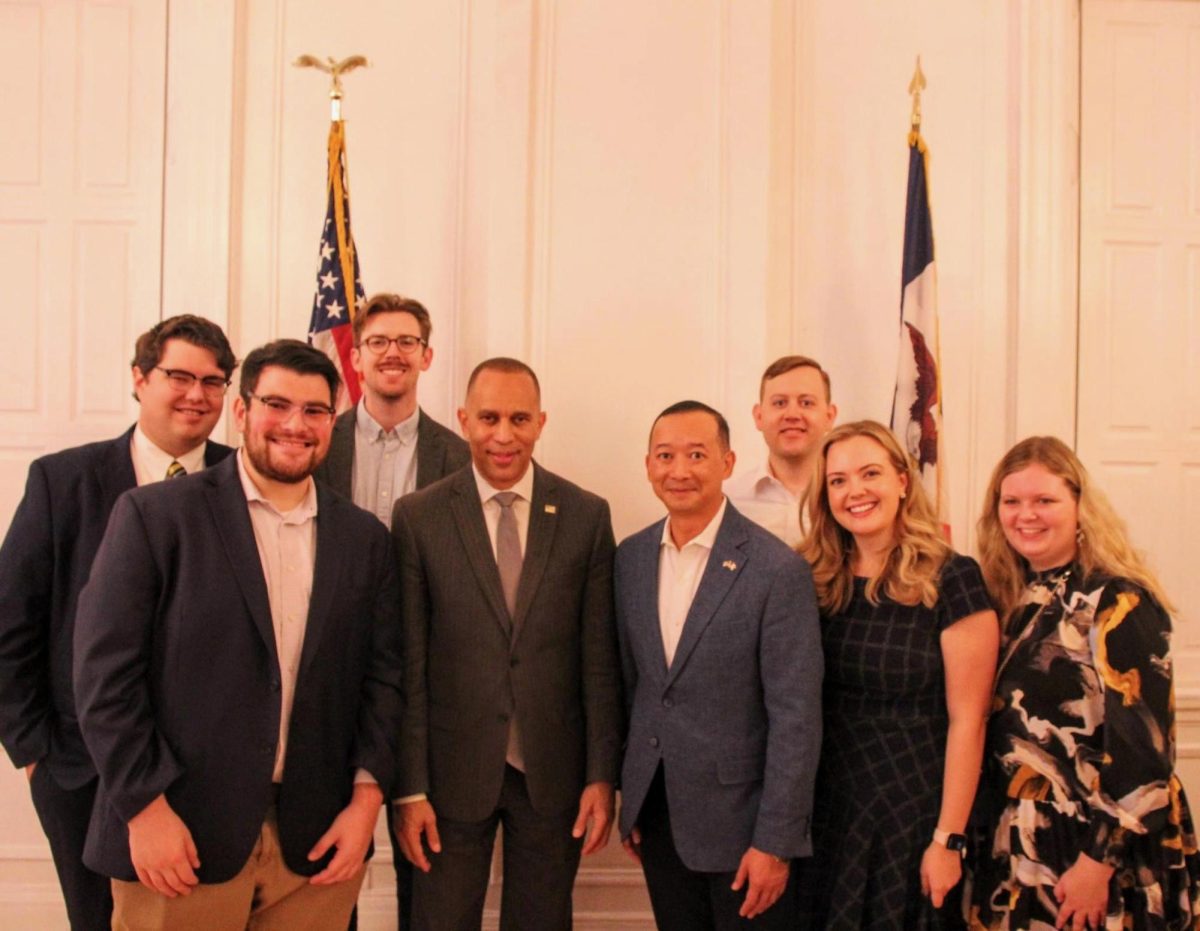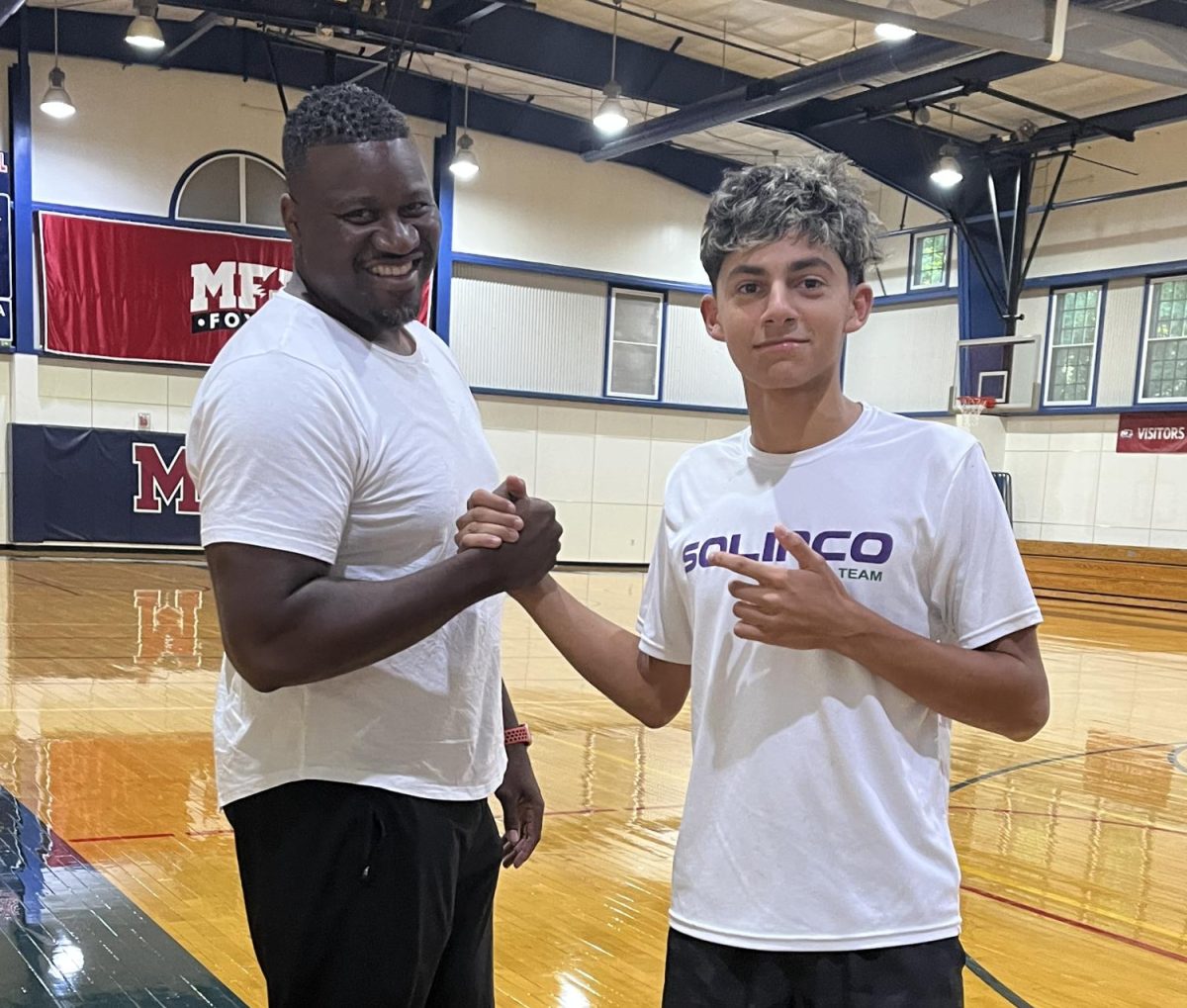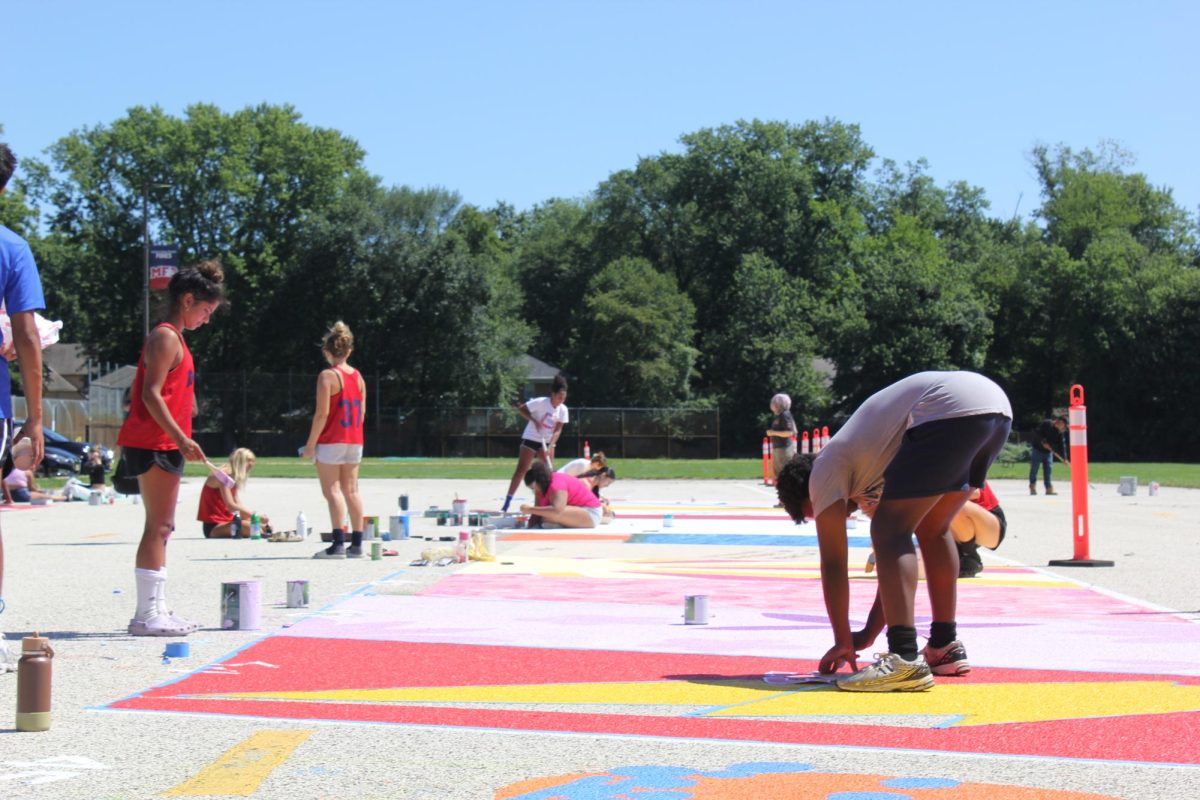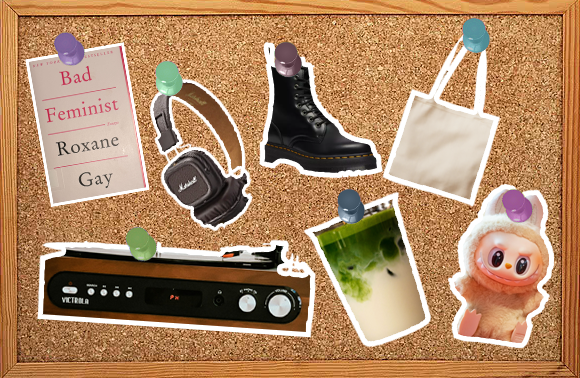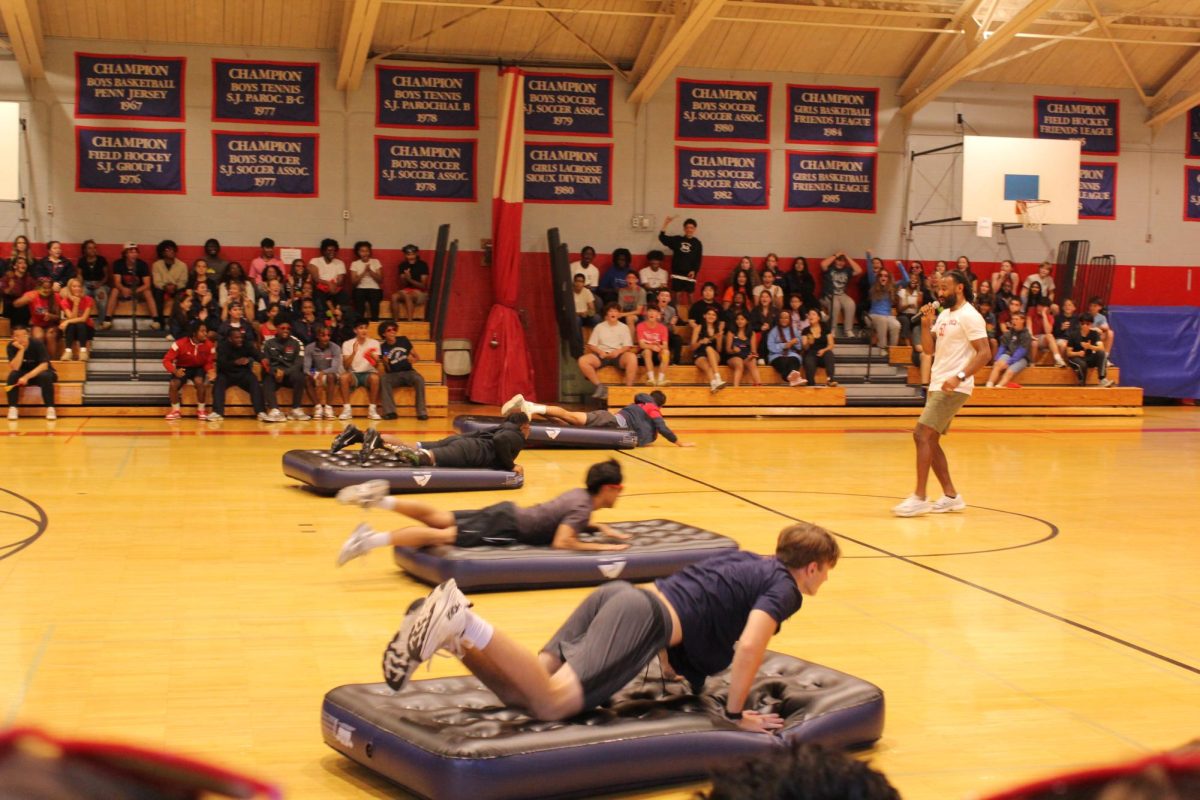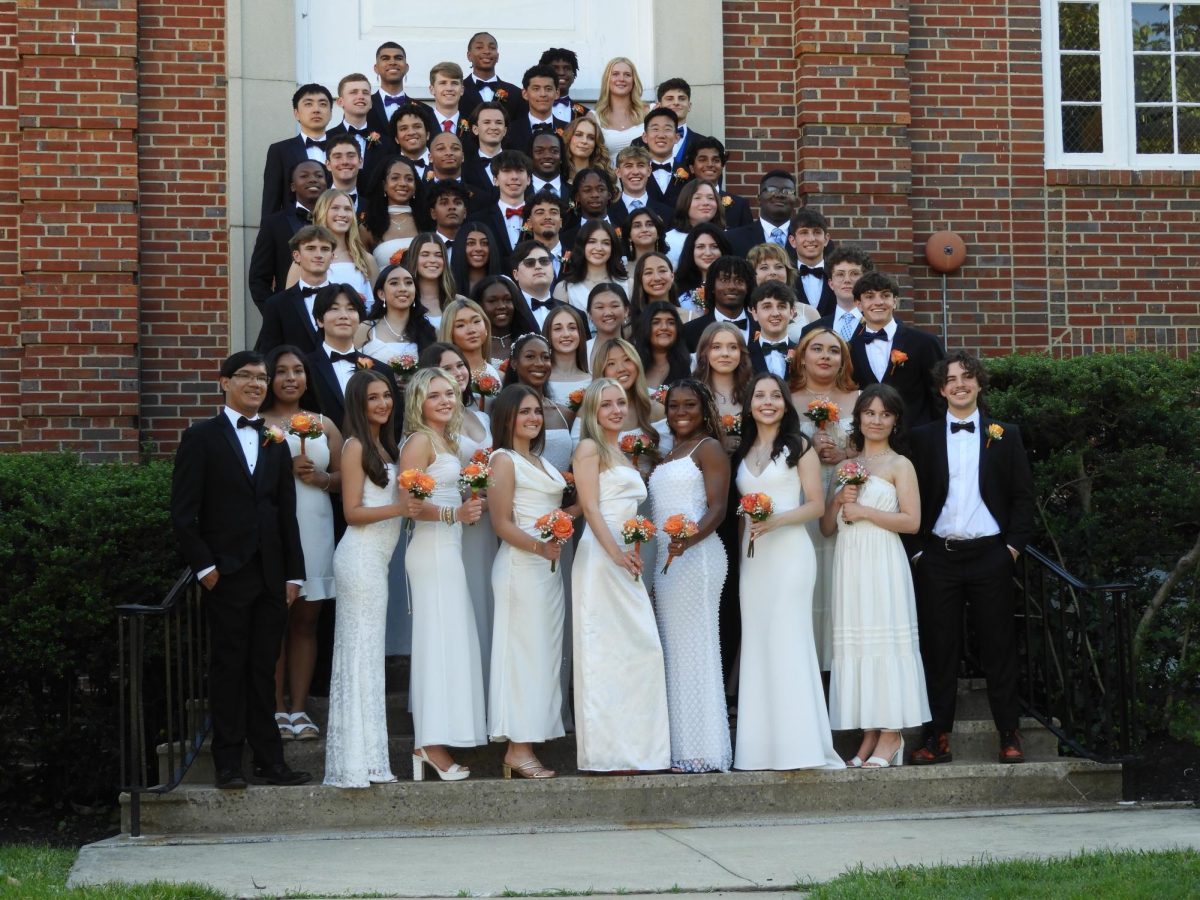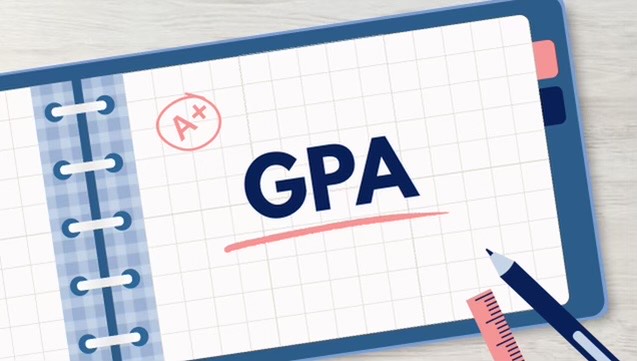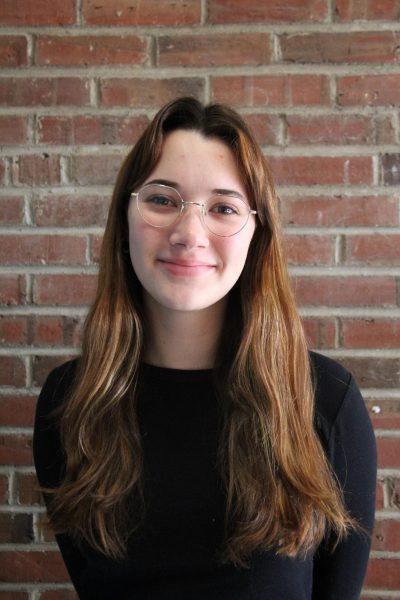In light of the recent student encampments at universities surrounding the war in Israel and Palestine, WordsWorth asked Moorestown Friends School (MFS) seniors and alumni student journalists about their opinions on the recent events.
Throughout the past eight months, student protesters have called for their universities to divest from Israel and companies that provide supplies for the Israeli military. The protests aimed to peacefully disrupt campus life, and they were met with many pro-Israel counter-protests. At notable universities such as Penn, Columbia, and UC Irvine, police were called to clear the encampments. Since early April, law enforcement has arrested more than 2,400 student protesters on more than 50 campuses, according to an article published by CNN on May 11. Included in these arrests were student journalists who were also gassed, assaulted, and targeted, despite “repeatedly identifying themselves as members of the press,” noted The Nation.
MFS graduate and rising Marist College freshman Nicholas Caputo ’24 describes himself as “a very opinionated person” and is interested in becoming a lawyer or politician. He gets his news from ABC News and Fox News. Caputo has decided to “kindly exclude” himself from the conversation regarding Israel and Palestine, as he feels that he “do[esn’t] have the history” or “the knowledge” to comment on such a heavy topic. Caputo is also a “deeply religious” Roman Catholic and says that “even though it is my holy land as much as anyone else’s,” he still does not feel comfortable contributing to the conversation in regard to which “side” is right or wrong.
Transitioning into next year, Caputo explained that in the event of a protest, he would “keep [his] mouth shut and [his] head low.” He said, “protesting is not my style” because it is “sticky” and “often get[s] out of hand.” He noted that even if people were protesting something that he was passionate about, he would “step back” for religious reasons. Instead, Caputo suggested an alternative: community forums and inclusivity panels for students and faculty.
In regards to freedom of speech, Caputo drew comparisons to protests in the ’60s and ’70s when students protested the Vietnam War. He explained that he doesn’t think current protests are “in the same realm” as the protests in the ’60s. Caputo noted that, during the Vietnam War, people knew what they were protesting for because “something like every single male above the age of 18” was being drafted in America. With protesters today, Caputo believes that, “both sides are not informed as to what they’re protesting about and what they’re fighting for,” and “whether it’s for Israel or for pro-Palest[ine], some people are doing it just to do it.”
Addressing protestors, Caputo said:
You can exercise your free speech that way. Sure. But it’s not the smart way to exercise your free speech. You know, if I’m going to protest something, I need to know what the facts are and what’s going on at that given moment if I’m going to be setting aside my classes and saying, hey, this is more important than what I’m doing in my life right now.
Caputo believes that protestors may be motivated by a desire to say “I was there; I was in the middle.” Again comparing current events to historical protests for the Vietnam War, he explained that people were “more present” in the past, having more informed opinions because they protested things based on their own lived experience rather than information found on social media. That being said, he feels that some people — specifically on places like Instagram — now think, “oh, I just want to put this on my (Instagram) story because I know it’ll look good for me.”
Dinah Megibow-Taylor ’24, former WordsWorth Editor-in-Chief, is a rising first year at the University of Chicago. Megibow-Taylor gets her news from online sources such as The New York Times and The Associated Press. She attempts to “steer clear” from “polariz[ing] sources like CNN, Fox News, or MSNBC.” She believes that mainstream media often “falls into the trap” of excessively reporting content that is “exploitative,” specifically of violence. In the case of student protests and freedom of speech, Megibow-Taylor reflected on how many of the people being arrested are in an important developmental stage that should not define the rest of their lives. She said, “They’re still almost children, and the decisions they make now, the thoughts they have now, are being exposed and exploited by the media for their own coverage and to fulfill a need in this world to have … constant coverage of everything and anything controversial.” Megibow-Taylor asserted, “I don’t think that’s fair.”
Recently, Megibow-Taylor has been keeping up with encampment and protest information at UChicago, noting that it has been “the most difficult” to discern which protests are peaceful and which protests are violent. In the event of “potential violence,” Megibow-Taylor “tend[s] to err on the side” of police intervention, but emphasizes that she “absolutely believe[s] in the right to peacefully protest on campuses.” Megibow-Taylor stated that she is not afraid of her own safety regarding protests on campus, noting, “I think that there’s probably a lot less calamity in real life than we see through the news.”
Megibow-Taylor also argued that it is incredibly difficult to be a student journalist at this time because “language has taken on a different meaning,” and many “buzzwords” and “phrases” may immediately lead others to view media as either far right or far left. She said, “I just think the landscape around us has shifted so drastically that it’s hard to keep up.” Despite this challenge, Megibow-Taylor affirmed that “student media [is] something to be proud of,” and “inspires me to change that narrative around journalism and to bring us back to an age that’s less polarized.”
Like Megibow-Tayor, alum Sam Bitman ’21 was the Editor-in-Chief of WordsWorth during his time at Moorestown Friends. He is now in his third year at USC and works for USC Annenberg Media as a producer of their radio show, assisting with photography and writing articles. His main sources of news are NPR podcasts, The New York Times podcasts, and several other local sources. Concerning media coverage overall, Bitman noted the importance of reading from multiple news outlets. Bitman sometimes finds himself “reading the same topic five different times from different publications” because sources are “all gonna be covering [a topic] wildly differently.” Bitman felt that large broadcast news “did a pretty good job overall covering [the encampments].”
Bitman covered the encampment at USC and the police arrests that followed. As part of Annenberg Media, he was one of the only press members allowed on campus during the encampment because all entrances were either closed or required student or faculty ID. Bitman explained, “a lot of the coverage [was] put onto one person’s shoulders,” and other media outlets were coming to Annenberg Media for information.
For the full interview with Sam Bitman detailing his experience covering the encampment, his opinions on the media, and more.
Nathaniel Rodwell-Simon ’23 is a rising second-year undergraduate at the University of Chicago. He is a news reporter and the deputy photo editor for the Chicago Maroon, the UChicago student newspaper. Rodwell-Simon gets his news primarily from news podcasts — like the NPR Politics Podcast — and sources like The New York Times, The Washington Post, and various social media outlets. Rodwell-Simon explained that while getting news from multiple sources is important, he said, “I don’t think that you have to get every single perspective, but you should be getting a diversity of voices in the news that you’re consuming.” In other words, “it’s important that the news that you consume is factually accurate, and news sources that don’t rely on rigorous factual reporting are not important to include one’s news consumption.”
Rodwell-Simon assisted in ground coverage for nine days during the protests, totaling about 16 hours every day. During that time, The Maroon staff wore press badges to identify themselves, but “in situations where there was heightened police presence for whatever reason, [they] also had highlighted vests clearly marked with ‘Press’.”
For the full interview with Nathaniel Rodwell-Simon detailing his experience covering the encampment, his opinions on the media, and more.

